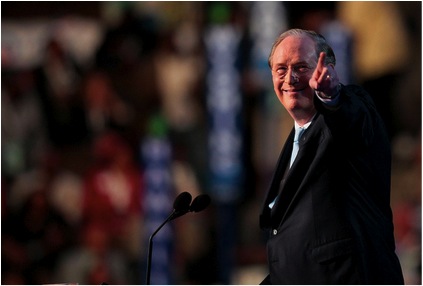Sen. Jay Rockefeller is expected to announce later today that he won't run for re-election in 2014. The West Virginia Democrat will have served 30 years in the Senate. He chairs the Senate Commerce Committee, one of the four Senate committees – though probably the least of the four – that crafts the surface transportation authorization, with a focus on rail.

On Wednesday, Politico published a story asking who in the Senate would take up the mantle of the infrastructure bank if Sen. John Kerry becomes Secretary of State. Kay Bailey Hutchison, the Republican co-sponsor of Kerry’s infrastructure bank bill, left the Senate to pursue an ultimately unsuccessful run for governor. The Politico story mentioned Sen. Frank Lautenberg as another champion for the bank, but he’s 88 years old and faces a potential primary challenge from the ridiculously popular Newark Mayor Cory Booker.
Rockefeller would have been a natural to step into the role of pushing the infrastructure bank. He co-sponsored Lautenberg’s bill, a somewhat different vision than the one put forth by Kerry and Hutchison. But with Rockefeller leaving the Senate, Politico’s question becomes ever more salient. Who’s left in the Senate to push for one of the main components of President Obama’s infrastructure plan?
That wasn’t the only way in which Rockefeller made a name for himself in transportation reform circles. He and Lautenberg also teamed up in 2009 to propose a set of principles for the next transportation authorization. Who could argue with the goals he put forward? Reducing annual miles driven, cutting traffic deaths in half, reducing emissions by 40 percent, cutting delays, improving state of good repair, and increasing transit, intercity rail, and non-motorized transport.
A version of Rockefeller’s proposal on distracted driving made it into the final MAP-21 transportation bill, with grants to states that pass laws against cell phone use while driving.
His Commerce Committee’s contribution to the most recent transportation bill was the best to come out of any committee. It included a complete streets rule, a multimodal overhaul to freight policy, and stronger performance measures than the ones in the final bill. (The complete streets provision got stripped out too.)
After the red line Metro crash in DC in 2009, he and Sen. Barbara Boxer called for rail safety funding. He argued against tax cuts for the rich on the basis that the government needs that tax money to repair deficient bridges.
Being from coal country, Rockefeller opposed efforts to pass a climate bill in 2010 and fought to delay the EPA’s regulation of carbon emissions. In recent months, however, he’s taken a far more antagonistic position toward the coal industry – an early signal he was considering leaving politics.
Like every departing Washington politician, Rockefeller says he wants to spend more time with his family.





